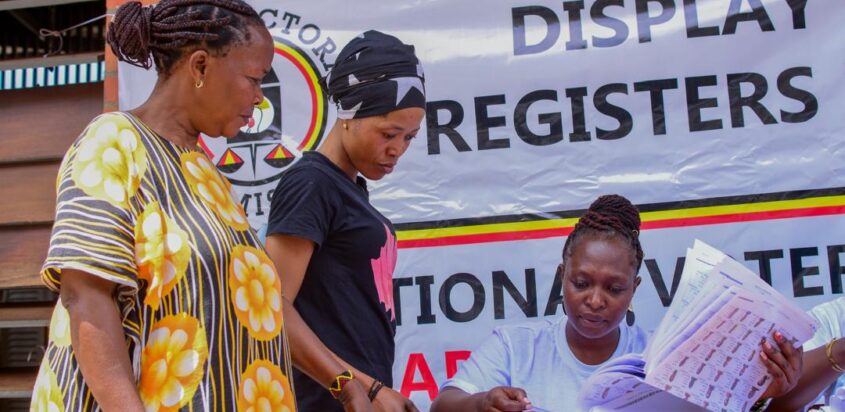
Uganda is currently undertaking one of the most critical exercises in its electoral calendar, the national display of the voters’ register, scheduled from April 25 to May 15, 2025. This process, managed by the Electoral Commission, is pivotal to ensuring the integrity of the 2026 General Elections. This process allows citizens to verify their voter registration details, confirm polling station assignments, and identify errors or ineligible entries. For Uganda’s youth, who form the largest demographic bloc, this exercise is not only an administrative obligation but a defining moment in shaping their democratic future.
In the previous electoral cycle, a significant number of eligible young Ugandans were unable to vote due to exclusion from the National Voters Register. Many had reached the age of 18 after the registration window had closed, and no provision was made for their inclusion before polling day. The outcome was that over one million eligible youth were left out of the 2021 elections, not only due to apathy, but also because of a narrow registration timeline and inadequate outreach. This pattern, unfortunately, risks repeating itself. In the January–February 2025, the general update of the voters register, only 361,432 new voters were successfully registered, falling significantly short of the EC’s projected target of 22 million total voters. The shortfall has been attributed to logistical limitations, limited awareness, and the brief duration of the exercise factors, which disproportionately affected first-time voters and youth.
The #NVRDisplay2025
Participation in the ongoing voter register display is a vital corrective step. For young Ugandans, verifying one’s name, photograph, and polling station details is not just a routine check but the first link in a longer chain of political engagement. It ensures that their right to vote is protected and that they are counted among Uganda’s electorate. More importantly, for those aspiring to leadership, accurate voter registration is a prerequisite for nomination to elective office.
Despite its importance, the display exercise has not been without challenges. Reports from media and civic monitors have cited over 620 polling stations experiencing technical issues in the first days of the exercise, resulting in temporary access barriers. The EC has since committed to ensuring that affected stations receive the full 21-day display period. Additionally, the exercise is aimed at cleaning up the register by removing names of the deceased, underage, or ineligible voters. Justice Simon Byabakama, Chairperson of the Electoral Commission, emphasized the critical nature of this stage in harmonizing data, especially for voters who registered through the NIRA but failed to indicate polling stations. He reiterated the Commission’s call to all Ugandans to take advantage of the window before May 15 to verify their records.
Technological adaptation
As an advancement in the processes, technology is playing an increasing role in Uganda’s electoral processes, offering young people a more accessible entry point. Through the EC’s digital portal (http://ec.or.ug/register), voters can verify their registration status using their National Identification Number (NIN), a tool designed to decentralize access and support faster engagement. The EC spokesperson, Mr. Julius Mucunguzi, has emphasized this digital shift as part of the Commission’s broader efforts toward transparency and participation. Yet digital solutions must be complemented by civic awareness. Tools alone cannot guarantee engagement; deliberate outreach and public education remain essential to overcoming voter apathy and systemic mistrust.
The decline in youth turnout between 2016 and 2021 is a matter of national concern. In 2016, youth voter turnout was approximately 73%. By 2021, it had fallen to 68%. While the difference may seem small, it reflects a broader sense of disillusionment that must be addressed. Trust in institutions is built not only through reform but through repeated, meaningful participation. When young people verify their records and turn out to vote, they affirm their place in Uganda’s democracy. When they participate as candidates, they challenge the status quo and offer new visions of leadership.
Insight
As part of the Strengthening Youth Civic Participation project, Open Space Uganda is spearheading a dynamic multimedia campaign aimed at empowering young people to take an active role in shaping the country’s democratic future. Through the #Youth4PeaceUG campaign, we are amplifying youth voices, promoting civic education, and mobilizing both duty bearers and the general public to contribute meaningfully to peaceful and inclusive electoral processes throughout this critical electoral cycle.
To join us, use the #Tag #Iam4PeaceUG, Youth4PeaceUg